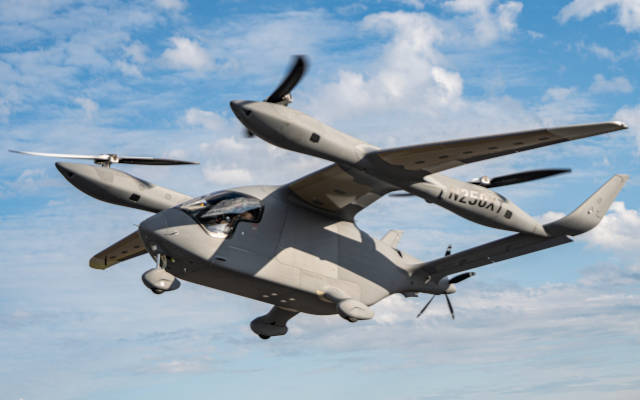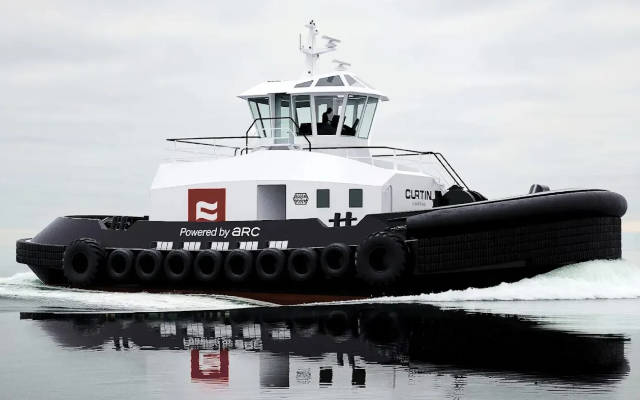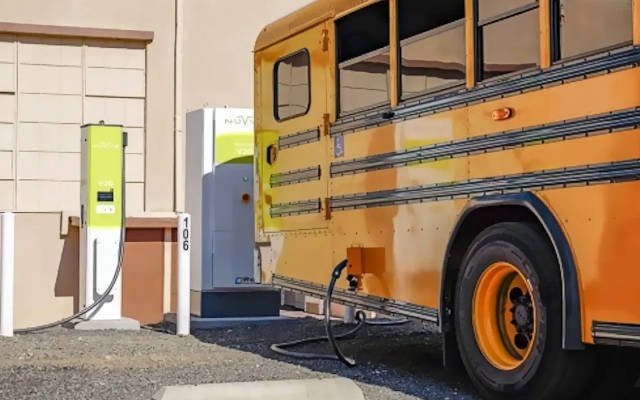 EDITOR'S PICK
EDITOR'S PICK
Seattle's Sound Transit: Ridership, Energy, and Fiscal Challenges
16 Sep 2025 | Synopsis
 Seattle's Sound Transit has expanded its Link light rail system to 45 miles, offering fast, affordable, and eco-friendly travel powered by hydro and wind energy. Ridership hit 3.08 million in October 2024, with fares as low as $1 for seniors and free for youth. A Lynnwood–SEA Airport trip takes 80–85 minutes by rail, beating car travel in cost and emissions. Despite success, Sound Transit faces need for a substantial financial overhaul.
Seattle's Sound Transit has expanded its Link light rail system to 45 miles, offering fast, affordable, and eco-friendly travel powered by hydro and wind energy. Ridership hit 3.08 million in October 2024, with fares as low as $1 for seniors and free for youth. A Lynnwood–SEA Airport trip takes 80–85 minutes by rail, beating car travel in cost and emissions. Despite success, Sound Transit faces need for a substantial financial overhaul.How FAA's eVTOL Pilot Could Transform U.S. Air Travel
14 Sep 2025 | Synopsis
 The FAA launched the eVTOL Integration Pilot Program (eIPP), a 3-year initiative inviting governments and private partners to test electric air taxis and other advanced air mobility (AAM) aircraft. The goal is to gather data to shape future regulations and demonstrate real-world use cases like cargo and medical transport. Companies like Joby, Archer, Beta, and Wisk plan to participate, aiming to revolutionize U.S. air travel.
The FAA launched the eVTOL Integration Pilot Program (eIPP), a 3-year initiative inviting governments and private partners to test electric air taxis and other advanced air mobility (AAM) aircraft. The goal is to gather data to shape future regulations and demonstrate real-world use cases like cargo and medical transport. Companies like Joby, Archer, Beta, and Wisk plan to participate, aiming to revolutionize U.S. air travel.Arc Announces $160M Deal With Curtin Maritime For Eight Hybrid-Electric Tugboats
14 Sep 2025 | Synopsis
 Arc signed a $160M deal with Curtin Maritime to deliver eight hybrid-electric tugboats, marking the largest commercial deployment of electric workboats. Built with Snow & Co, the tugs feature Arc's 4,000+ HP electric powertrains and 6 MWh battery buffers. The first four are due by 2027. The project aims to modernize U.S. ports with efficient, low-maintenance, cost-effective vessels, challenging diesel norms and advancing marine electrification.
Arc signed a $160M deal with Curtin Maritime to deliver eight hybrid-electric tugboats, marking the largest commercial deployment of electric workboats. Built with Snow & Co, the tugs feature Arc's 4,000+ HP electric powertrains and 6 MWh battery buffers. The first four are due by 2027. The project aims to modernize U.S. ports with efficient, low-maintenance, cost-effective vessels, challenging diesel norms and advancing marine electrification.ComEd Begins Testing Phase of First of Its Kind Vehicle-to-Grid Charging Pilot with Local School Districts
14 Sep 2025 | Synopsis
 ComEd launched testing for its first vehicle-to-grid (V2G) charging pilot with three Illinois school districts. The initiative uses bidirectional chargers on electric school buses to explore energy optimization, grid support, and cost savings during peak demand. Part of ComEd's Beneficial Electrification Plan, the pilot aims to scale V2G tech and includes partners like Nuvve and Resource Innovations.
ComEd launched testing for its first vehicle-to-grid (V2G) charging pilot with three Illinois school districts. The initiative uses bidirectional chargers on electric school buses to explore energy optimization, grid support, and cost savings during peak demand. Part of ComEd's Beneficial Electrification Plan, the pilot aims to scale V2G tech and includes partners like Nuvve and Resource Innovations.The Illusion of Clean: How Big Oil Perfected the Art of Greenwashing
13 Sep 2025 | Synopsis
 Big Oil's decades-long greenwashing campaign used PR to mask environmental harm. Chevron's "People Do" ads, Exxon's climate denial lobbying, and BP's carbon footprint push shifted blame to consumers. Investors like BlackRock and execs like Rex Tillerson profited, while conservative politicians traded support for donations. Lawsuits from cities and youth groups now challenge fossil fuel deception, aiming to hold companies accountable in court.
Big Oil's decades-long greenwashing campaign used PR to mask environmental harm. Chevron's "People Do" ads, Exxon's climate denial lobbying, and BP's carbon footprint push shifted blame to consumers. Investors like BlackRock and execs like Rex Tillerson profited, while conservative politicians traded support for donations. Lawsuits from cities and youth groups now challenge fossil fuel deception, aiming to hold companies accountable in court.
 Si Exclusive
Si Exclusive
Hydrogen's Flight Path: Fuel Cells, Turbines, and the Economics of Clean Aviation
10 Oct 2025 |  Aviation is shifting from Jet A to four fuel systems: electricity, hydrogen (fuel cell and combustion), SAF, and petroleum. Fuel cells suit short-haul aircraft; hydrogen combustion may power long-range jets. SAF bridges legacy fleets. Hydrogen costs - $5-$7/kg today, possibly $2/kg by 2040 - impact ticket prices and infrastructure decisions. Airport authorities, airlines, and governments will share deployment costs. Each fuel has distinct environmental pros and cons shaping aviation's net-zero future.
Aviation is shifting from Jet A to four fuel systems: electricity, hydrogen (fuel cell and combustion), SAF, and petroleum. Fuel cells suit short-haul aircraft; hydrogen combustion may power long-range jets. SAF bridges legacy fleets. Hydrogen costs - $5-$7/kg today, possibly $2/kg by 2040 - impact ticket prices and infrastructure decisions. Airport authorities, airlines, and governments will share deployment costs. Each fuel has distinct environmental pros and cons shaping aviation's net-zero future.
 11 Oct 2025 01:15:59 UTC |
RECENT PODCASTS
BYD Soars - Cheaper Tesla Models - The Bolt is Back - Rivian
SEARCH RSSTREAM
 53 New Postings In Past 24 Hours
53 New Postings In Past 24 Hours
Category:finance
Region:NoAmerica
Date:10 Oct 2025
Category:policy
Region:NoAmerica
Date:10 Oct 2025
Category:mobility
Region:AsiaPacific
Date:10 Oct 2025
Category:mobility
Region:AsiaPacific
Date:10 Oct 2025
Category:finance
Region:NoAmerica
Date:10 Oct 2025
Category:finance
Region:IndoAsia
Date:10 Oct 2025
Category:energy
Region:Global
Date:10 Oct 2025
Category:energy
Region:NoAmerica
Date:10 Oct 2025
Category:finance
Region:NoAmerica
Date:10 Oct 2025
Category:finance
Region:Global
Date:10 Oct 2025